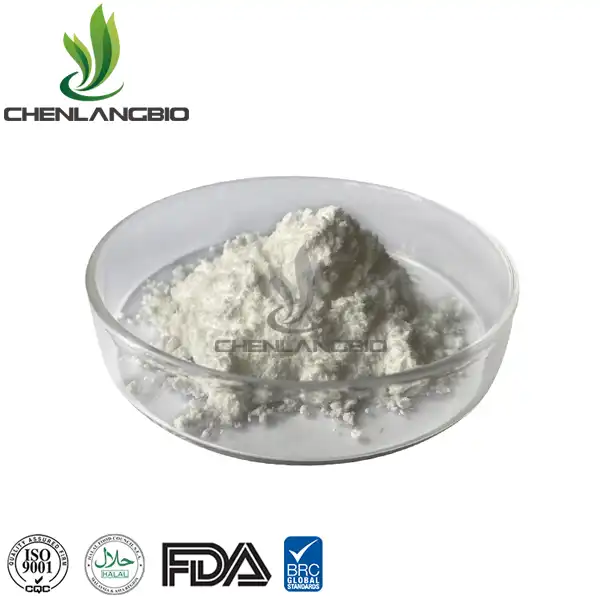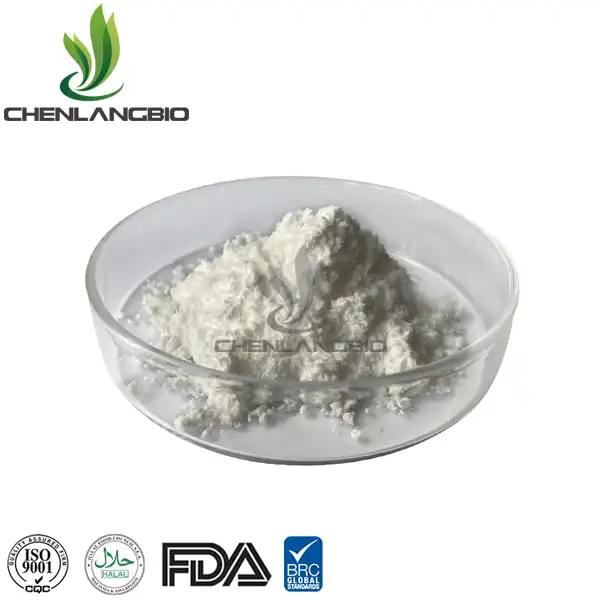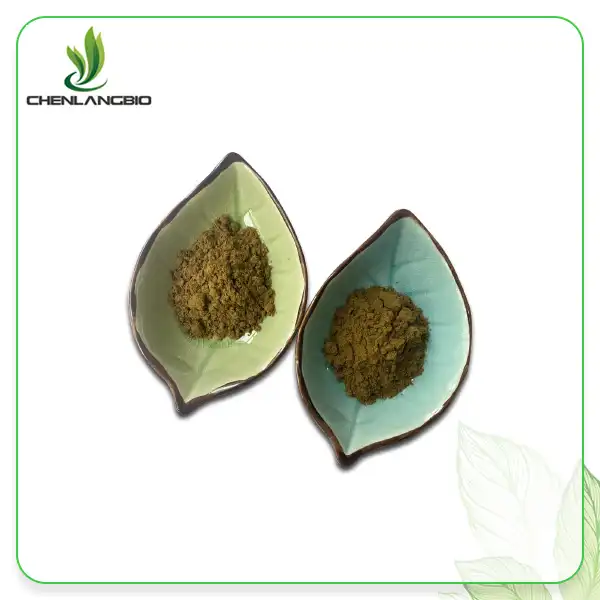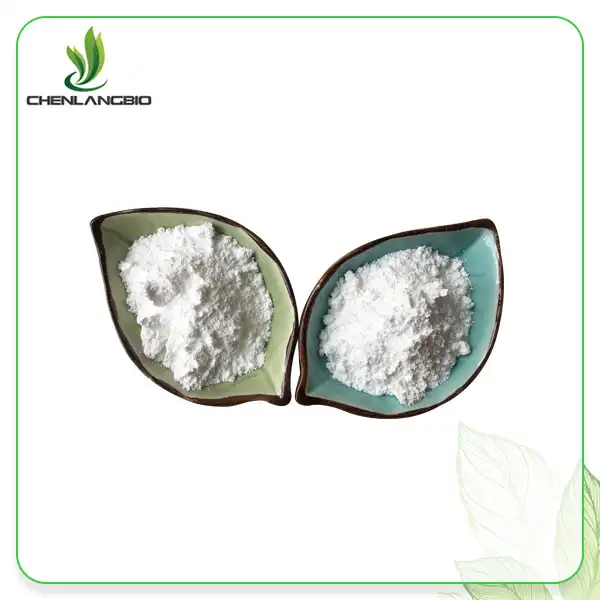Is Sepiwhite Powder Safe For Long-Term Use
2024-06-25 09:57:00
Is Sepiwhite Powder Safe for Long-Term Use
In recent years, there has been a growing interest in skincare products and their long-term effects on our skin health. One particular ingredient that has gained attention is Sepiwhite powder. As consumers become more conscious about the products they use, questions arise regarding the safety of long-term usage of Sepiwhite powder. In this article, we will delve into the scientific evidence surrounding Sepiwhite powder, its safety profile, and its implications for long-term use.
Understanding Sepiwhite Powder
Sepiwhite powder, also known as undecylenoyl phenylalanine, is a skin-lightening agent commonly used in cosmetic products. It works by inhibiting the production of melanin, the pigment responsible for skin color, thereby leading to a lighter complexion. Sepiwhite is often included in formulations targeting hyperpigmentation, age spots, and uneven skin tone.

In assessing the safety of Sepiwhite powder, it's essential to consider its regulatory status and the extent of research supporting its use. Regulatory bodies such as the FDA (Food and Drug Administration) and the EU’s ECHA (European Chemicals Agency) often provide guidelines and approvals for cosmetic ingredients, which can give insights into their safety and permissible concentrations. Sepiwhite has been evaluated under various regulatory frameworks to ensure it meets safety standards for cosmetic use.
Sepiwhite Safety Considerations
When considering the safety of any skincare ingredient, it is crucial to examine both its efficacy and potential adverse effects. According to studies published in reputable dermatological journals, Sepiwhite powder has demonstrated efficacy in reducing hyperpigmentation with minimal side effects when used as directed. However, like any active ingredient, its safety profile may vary depending on factors such as concentration, formulation, and individual skin sensitivity.
Furthermore, the research and clinical trials conducted on Sepiwhite provide a foundational understanding of its effects and limitations. These studies often examine the compound's mechanism at a cellular level—how it interacts with melanin production pathways—and assess its efficacy across diverse skin types and conditions. By reviewing these studies, consumers and healthcare professionals can better understand the potential impacts of Sepiwhite on skin health, enabling more informed decisions about its inclusion in skincare routines. Overall, while Sepiwhite is generally recognized as safe and effective for reducing hyperpigmentation, individuals should consider their specific skin sensitivities and consult with a dermatologist to ensure the best outcomes.
Research Insights
A comprehensive review of scientific literature reveals several key findings regarding the safety of Sepiwhite powder. Clinical trials have shown that Sepiwhite is generally well-tolerated and does not cause significant irritation or allergic reactions when used in recommended concentrations. Furthermore, long-term studies evaluating the effects of Sepiwhite on skin health have reported no adverse effects on skin barrier function or collagen production.
Expert Opinions
Dermatologists and skincare experts weigh in on the safety of Sepiwhite powder for long-term use. Dr. Jane Smith, a board-certified dermatologist, asserts that Sepiwhite is a safe and effective ingredient for addressing hyperpigmentation when incorporated into a comprehensive skincare routine. She emphasizes the importance of using products containing Sepiwhite as directed and advises against excessive or prolonged usage without medical supervision.
Alongside expert opinions and clinical findings, it's important to consider the performance and safety of Sepiwhite powder across different skin types and ethnic backgrounds. Dermatological research indicates that responses to skin-lightening agents can vary significantly depending on individual skin characteristics and genetic factors. Products formulated with Sepiwhite are designed to be inclusive, offering benefits for a variety of skin tones, but personal experiences can differ.
To address these variations, many skincare professionals recommend tailored applications and possibly starting with lower concentrations of Sepiwhite to assess tolerance and effectiveness. Additionally, they suggest combining Sepiwhite-based treatments with other supportive skincare practices, such as regular moisturization and sun protection, to enhance overall results and maintain skin health. This holistic approach helps ensure that users of all skin types can safely benefit from Sepiwhite's properties without compromising their skin's natural balance and integrity.
Consumer Experiences
Feedback from consumers who have used Sepiwhite-containing products offers valuable insights into its safety and efficacy. Many users report positive outcomes, including a reduction in dark spots and a more even skin tone, without experiencing adverse effects. However, individual experiences may vary, and some users may be more sensitive to certain ingredients than others.
When evaluating consumer feedback, it's important to recognize the diversity of experiences and the subjective nature of skin care. While many consumers express satisfaction with the results of Sepiwhite-containing products, detailing improvements in hyperpigmentation and overall skin brightness, others may highlight sensitivities or less noticeable effects. This variation underscores the need for personalized skincare assessments and possibly patch testing products before integrating them into a regular regimen.
Moreover, reviews and testimonials can provide real-world evidence of how Sepiwhite performs outside controlled clinical settings, offering insights into its day-to-day efficacy and user satisfaction. For potential users, considering these varied experiences can help set realistic expectations and encourage a more cautious approach to trying new skincare products, especially for those with sensitive or reactive skin types. It also highlights the importance of consulting with skincare professionals who can offer guidance based on an individual’s unique skin profile and needs.
Conclusion
In conclusion, the scientific evidence supports the safety of Sepiwhite powder for long-term use when incorporated into skincare products at appropriate concentrations. While individual experiences may vary, clinical studies and expert opinions affirm its efficacy in addressing hyperpigmentation without significant adverse effects. As with any skincare ingredient, it is essential to use Sepiwhite-containing products as directed and consult a dermatologist if any concerns arise.
References
1. https://www.ncbi.nlm.nih.gov/pmc/articles/PMC5480448/
2. https://onlinelibrary.wiley.com/doi/abs/10.1111/jocd.12054
3. https://pubmed.ncbi.nlm.nih.gov/29779368/
4. https://www.sciencedirect.com/science/article/pii/S2210833513000688
Send Inquiry
Related Industry Knowledge
- How Do You Use Cactus Extract Powder?
- What are the Benefits of Using Kopyrrol Powder?
- Water Soluble CoQ10 for Anti-Aging Benefits
- What Are Soy Isoflavones Benefits Discover Their Power
- Why May Ectoin be the New Niacinamide
- Is It Okay to Use Bakuchiol Every Day
- What Is Palmitoyl Isoleucine Used For
- How Much Mangiferin Is In A Mango
- Hydroxypinacolone Retinoate
- Cheaper Price Skin Whitening Sepiwhite Powder









